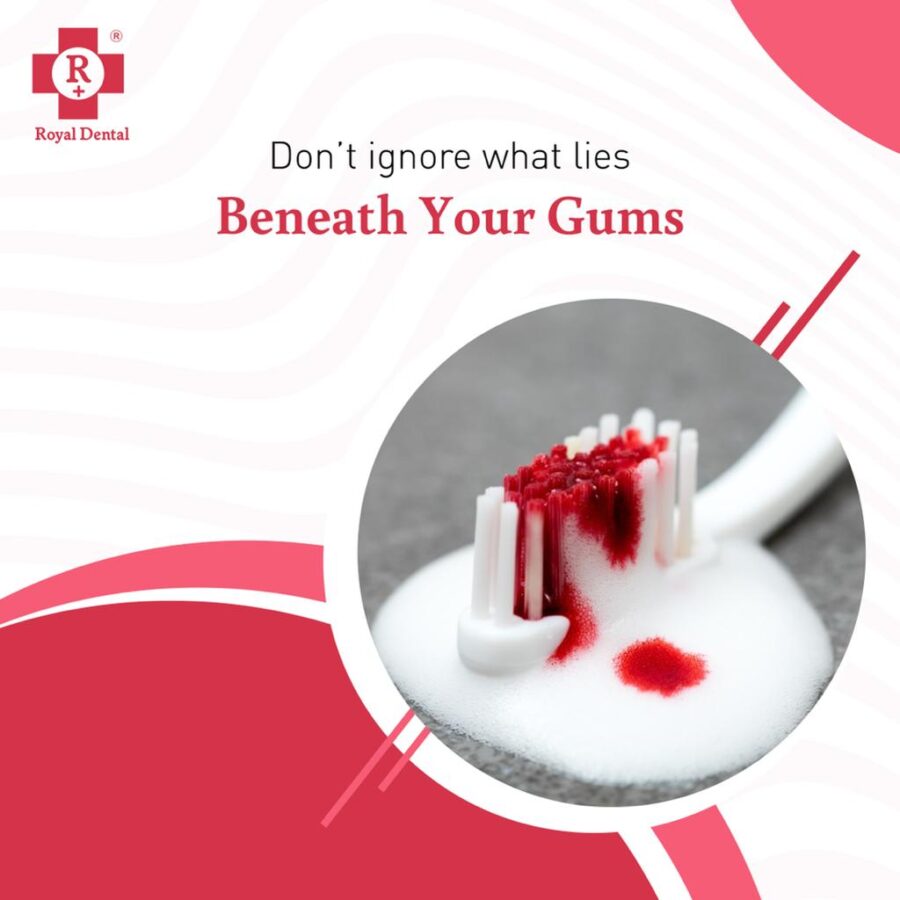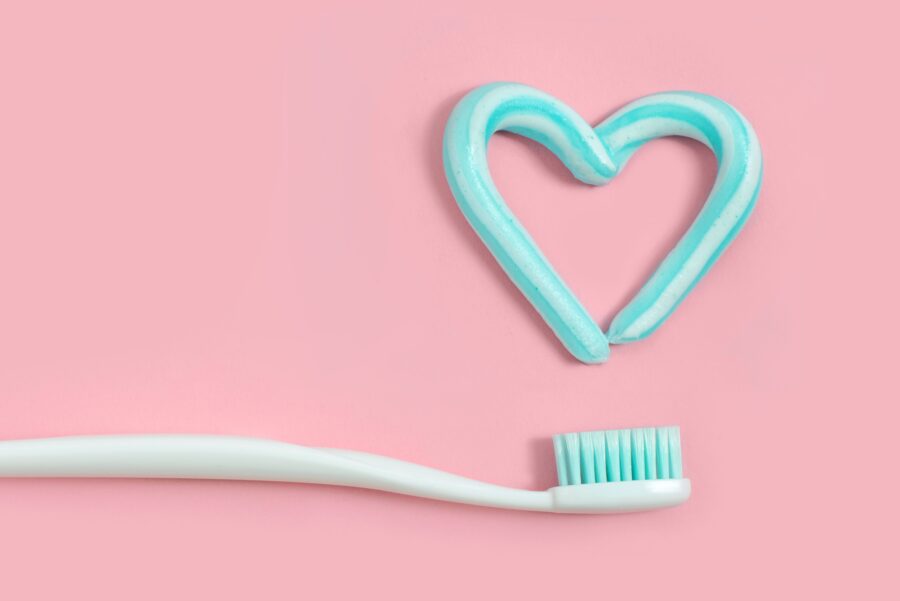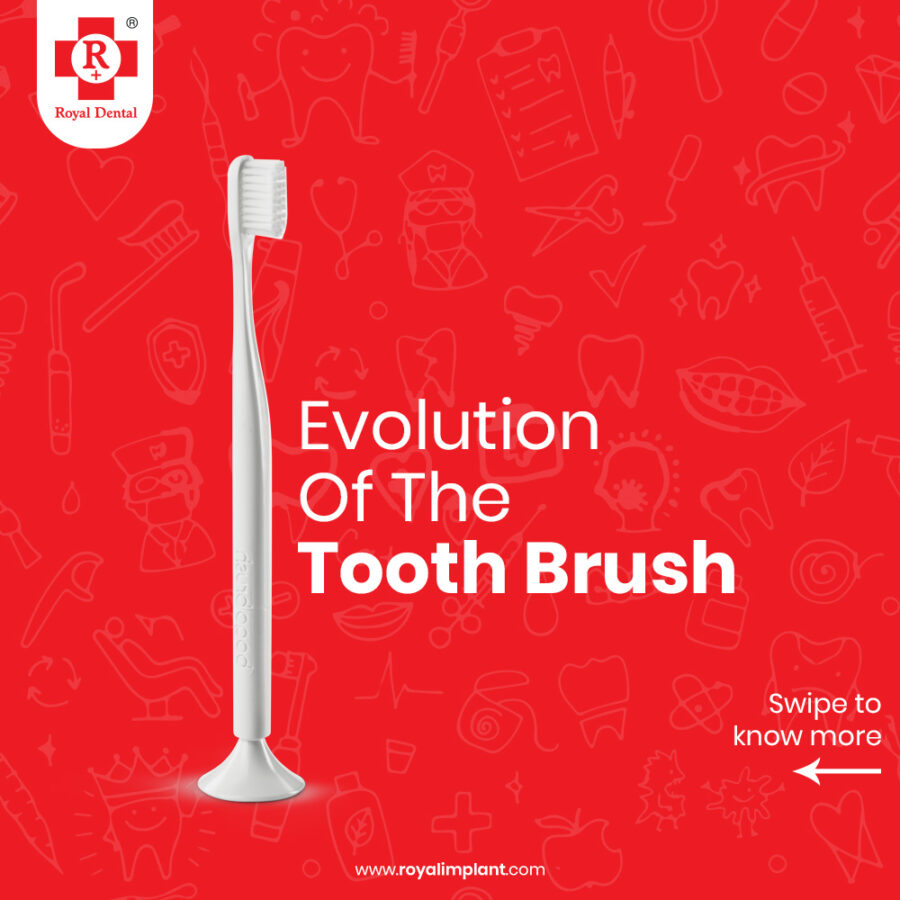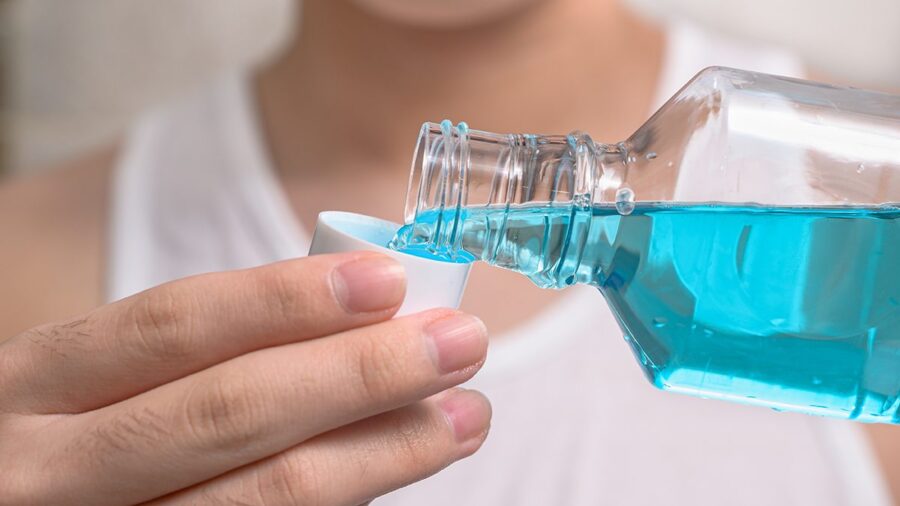Bleeding gums can be a common yet concerning oral health issue that many individuals experience at some point in their lives. It can range from mild occasional bleeding to more severe and persistent bleeding, causing discomfort and alarm. Fortunately, there are effective ways to address and prevent bleeding gums, promoting healthier oral hygiene and overall well-being. In this comprehensive guide, renowned dentist Dr. Chirag Chamria of Royal Dental Clinics shares his expert advice on how to stop bleeding gums. By following his recommendations, you can take proactive steps to maintain optimal gum health and prevent further complications.
Understanding the causes of Bleeding Gums
Poor Oral Hygiene: Poor oral hygiene causes bleeding gums. Plaque and bacteria may cause gumline irritation and bleeding. Plaque and gum health need proper brushing and flossing.
Gingivitis: Gum disease begins with gingivitis, gum inflammation. Plaque may irritate and infect gums, producing bleeding. Professional dental cleanings and checkups may prevent and cure gingivitis.
Hormonal Changes: Pregnancy and menopause may make gums sensitive and bleed. This is pregnancy or hormonal gingivitis. Hormonal fluctuations increase gum blood flow, causing irritation and bleeding.

Medications: Blood thinners may disrupt the body’s blood-clotting mechanism. Thus, even little injuries may cause gum bleeding. To get the right treatment, tell your dentist about your drugs.
Trauma or Injury: Too-aggressive brushing or flossing may cause gum damage and bleeding. To prevent injury, treat your gums and teeth gently.
Systemic Diseases: Leukemia and bleeding disorders may cause bleeding gums. These disorders impair blood clotting, causing gum bleeding.
Nutritional Deficiencies: Vitamin C and vitamin K deficiency may weaken gum tissues and cause bleeding. Vitamin K helps blood coagulate, while vitamin C promotes collagen formation for healthy gums.
Improving Oral Hygiene Routine in Bleeding Gums
Brush properly: Use a soft-bristled toothbrush and brush your teeth gently in a circular motion, ensuring that you cover all tooth surfaces. Avoid aggressive brushing, as it can further irritate the gums.
Floss regularly: Regular flossing removes plaque and debris from between the teeth and along the gumline, reducing the risk of gum inflammation and bleeding.
Use mouthwash: Rinse your mouth with an antimicrobial mouthwash after brushing and flossing. This can help reduce the bacteria that cause gum inflammation and bleeding.
Visit your dentist: Regular dental check-ups and professional cleanings are crucial for maintaining healthy gums. Your dentist can detect early signs of gum disease and provide appropriate treatment.
Quit Smoking | Bleeding Gums

Smoking has numerous detrimental effects on oral health, including an increased risk of gum disease and bleeding gums. Quitting smoking is beneficial not only for your gums but for your overall health. Seek support from your dentist or healthcare professional to quit smoking successfully.
Adopt a Gum-Friendly Diet
A healthy diet can significantly impact the health of your gums. Here are some dietary recommendations to promote gum health and prevent bleeding:
Avoid sugary foods: Sugary snacks and beverages can contribute to plaque formation and increase the risk of gum inflammation. Limit your intake of such foods.
Choose a balanced diet: Include foods rich in vitamins C and K, as they promote gum health. Citrus fruits, leafy greens, and berries are excellent sources of these vitamins.
Stay hydrated: Drinking plenty of water helps flush out bacteria from the mouth and keeps your gums moisturized. Adequate hydration reduces the risk of gum bleeding.
Using Gentle Dental Care Products
Using gentle dental care products is an important aspect of maintaining healthy gums and preventing bleeding. Here are some recommendations for incorporating gentle dental care products into your oral hygiene routine:

Soft-Bristled Toothbrush
Use a gentle toothbrush. Hard bristles may irritate or injure gums. Soft bristles gently clean sensitive teeth and gums.
Electric Toothbrush
Use a spinning or oscillating electric toothbrush. These toothbrushes clean well without abrasiveness. Bleeding gums benefit from electric toothbrushes’ mild, programmed movements.


Mild Toothpaste
Choose sensitive toothpaste. Potassium nitrate or strontium chloride soothe and preserve gums with these toothpastes. Abrasive toothpastes may irritate gums.
Alcohol-Free Mouthwash
Alcohol-containing mouthwashes may dry and irritate oral tissues. Alcohol-free mouthwash is gentle on gums. Chlorhexidine and hydrogen peroxide mouthwashes decrease germs and enhance gum health.


Water Flosser
Oral irrigators clean teeth and gums with water. This floss is softer for bleeding gums and orthodontic equipment. Water flossers are gum-friendly.
Managing Stress | Bleeding Gums
Stress can have a negative impact on your oral health, including an increased risk of gum bleeding. Incorporating stress management techniques into your daily routine can promote healthier gums. Here are some suggestions:
Exercise regularly: Engaging in physical activity helps reduce stress levels and promotes overall well-being. Aim for at least 30 minutes of exercise most days of the week.

Practice relaxation techniques: Meditation, deep breathing exercises, and mindfulness can help reduce stress and its impact on your oral health.
Engage in activities you enjoy: Pursue hobbies or activities that bring you joy and help you relax. This can be anything from reading a book to painting or spending time in nature.
Conclusion
Dr. Chirag Chamria shares his knowledge on how to stop bleeding gums and boost dental health. It’s important to take care of your teeth and gums by sticking to a regular oral hygiene regimen, eating healthily, not smoking, caring for your teeth using mild products, and controlling your stress levels. However, if the bleeding continues, or if you have significant pain or other worrying signs, a visit to the dentist is warranted. By committing to good oral hygiene and seeing a dentist regularly, you can have healthy gums for life.
© All rights reserved by Royal Dental Implants Pvt Ltd
Issued in public interest






